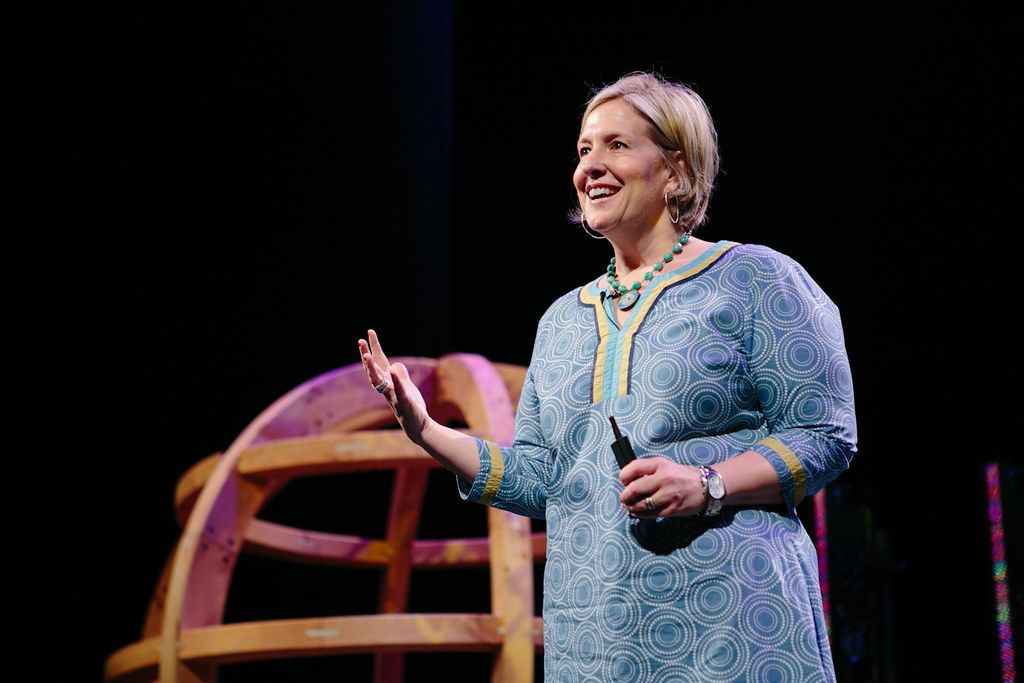Many of us hate narcissists. Often, they hate themselves, too.
The word "narcissism" has picked up substantial traction and awareness in recent years. An article is Psychology Today sums it up nicely: Narcissists disrespect experts and boundaries, live for drama, and will throw others under the bus at a moment’s notice to further their own agenda.
I am a consultant. At one point, my primary client was a startup media agency owned and operated by, well, narcissists. The company was dysfunctional and toxic. The owners couldn’t handle anyone being negative around them, and spent all the company savings on an agent to try and land themselves a TV show so they could become wildly famous.
It was around this time that I came across an episode of the Tim Ferriss Show that featured Dr. Brené Brown. A world-renowned University of Houston research professor on shame resilience who has spent decades studying courage, Dr. Brené Brown’s insights first went mainstream in her 2010 TEDx talk on vulnerability, one of the most popular talks of all time. Dr. Brown's books include Daring Greatly, Dare to Lead, and Rising Strong.
The two New York Times bestselling authors bounced back and forth on different topics in refreshingly unscripted conversation, and some pretty incredible gems bubbled to the surface.
One was an observation from Dr. Brown on narcissists and how most people misinterpret the way they truly function. Being managed by narcissists at the time, I naturally leaned in.
Formally Defining Narcissism
According to the Diagnostic and Statistical Manual of Mental Disorders (DSM-V), a person is said to have Narcissistic Personality Disorder (NPD) when they exhibit five or more of the following nine criteria:
- Has a grandiose sense of self-importance (e.g. exaggerates achievements and talents, expects to be recognized as superior without commensurate achievements).
- Is preoccupied with fantasies of unlimited success, power, brilliance, beauty, or ideal love.
- Believes that they are “special” and unique and can only be understood by, or should associate with, other special or high-status people (or institutions).
- Requires excessive admiration.
- Has a sense of entitlement (i.e., unreasonable expectations of especially favorable treatment or automatic compliance with their expectations).
- Is interpersonally exploitative (i.e., takes advantage of others to achieve their own ends).
- Lacks empathy: is unwilling to recognize or identify with the feelings and needs of others.
- Is often envious of others or believes that others are envious of them.
- Shows arrogant, haughty behaviors or attitudes.
My first thought upon reading these criteria is that these characteristics would seem to apply to a lot of people. About half of Instagram, yeah? Surely, social media is a catalyst for this behavior.
Researchers have been studying the relationships between narcissism and environment for a while now, and while it’s easy to assume social-media-savvy generations are the most narcissistic, the science doesn’t back it up.
Important:Researchers have debunked the idea that younger people are more narcissistic.
What Science Says About Mainstream Narcissism
Today’s young people aren’t more narcissistic in a clinical sense than previous generations. They’ve just been taught to look at themselves from an earlier age, according to research published in Psychological Science, a leading scholarly journal. They also have more agency to do so through tools like smartphones, selfies, and social media feeds. (Thanking my lucky stars I was born in 1987 and missed the landscape of having Instagram in 7th grade, honestly.)
In another study, later recapped in a 2018 paper published by the journal Public Library of Science, scientists examined the differences between residents of former West Germany and former East Germany. Germans who had grown up in the more culturally individualistic West Germany indicated both higher levels of desire for grandiosity and lower levels of self-esteem than citizens of more collectivist East Germany.
Important:The study found that people reared in a more individualist culture had a greater "desire for grandiosity", but they also reported lower self-esteem.
While we may not be all evolving into diagnosable narcissists, it’s likely that the nuances of modern life enable some of NPD’s character traits for a lot of us.
So when does it go off the rails and into full-blown disorder? For that, I’ll defer to Dr. Brown.
The Quip
About thirty minutes into the interview, Dr. Brown’s passing comment is one of the interview’s best gems. I’ve linked this video to start a few seconds before she lays it down:
In case you can’t watch or listen right now, here’s what Dr. Brown states:
“Do you know that narcissism is the most shame based of all the personality disorders? Narcissism is not about self love at all. It’s about grandiosity driven by high performance and self hatred. I define narcissism as the shame-based fear of being ordinary.”
When shame goes unchecked, it infects your life and makes you cling to arrogance, loneliness, and self-loathing. If that's in your space right now, here are a few things to consider:
- Examine your relationship with technology. Social media is not life, it’s a highlight reel. If you find you’re measuring yourself against impossible expectations, it might be time for a break to reset and detox performative behaviors.
- Keep an open mind. Confirmation bias — the tendency to seek out information in a way that validates your existing opinion— is a poison. Lucky for us, the antidotes are self-awareness and personal growth, and if you’re reading articles like this one, you’re probably headed in the right direction.
- Pursue excellence, but be a good sport too. As famous drag queen Alyssa Edwards says, “Winning isn’t everything, but wanting to is.” Let competitiveness motivate you, but don’t let it destroy you.
Dr. Brown points out that “We lose a lot of people with this (work) because it’s not an efficient process,” and it’s true. Personal growth can sting at first, and it’s guaranteed to be messy.
By increasing awareness of ourselves and why we behave the way we do, we not only get better at detecting this behavior in others, but also check ourselves and move toward a happier, more authentic life.
Thanks For Reading 🙏🏼
Keep up the momentum with one or more of these next steps:
📣 Share this post with your network or a friend. Sharing helps spread the word, and posts are formatted to be both easy to read and easy to curate – you'll look savvy and informed.
📲 Hang out with me on another platform. I'm active on Medium, Instagram, and LinkedIn – if you're on any of those, say hello.
📬 Sign up for my free email list. This is where my best, most exclusive and most valuable content gets published. Use any of the signup boxes on the site.
🏕 Up your writing game: Camp Wordsmith is a free online resources portal all about writing and media. Get instant access to resources and templates guaranteed to make your marketing hustle faster, better, easier, and more fun. Sign up for free here.
📊 Hire me for consulting. I provide 1-on-1 consultations through my company, Hefty Media Group. We're a certified diversity supplier with the National Gay & Lesbian Chamber of Commerce. Learn more here.


